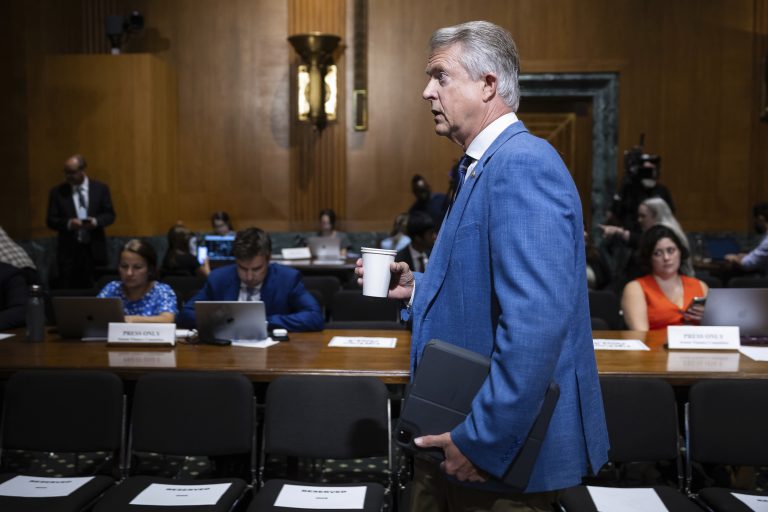Nearly one month into the government shutdown, the vibes might finally be shifting.
A looming cliff of crucial deadlines, plus fresh outside pressure, is adding new urgency into bipartisan conversations that have been sputtering for weeks.
“I think they’ve picked up,” Senate Majority Leader John Thune told POLITICO about the rank-and-file bipartisan talks. “Deadlines have a way of doing that.”
Several of Thune’s senators, plus Speaker Mike Johnson and other House GOP leaders, appear increasingly convinced that enough centrist Democrats are getting ready to fold — potentially by early next week.
The looming cutoff of food benefits, air travel delays and a new statement from the largest union of federal employees calling on lawmakers to end the shutdown are bearing down, they believe.
It’s worth noting: Democrats are not signaling publicly that they are ready to take an off-ramp. Asked what his plan was for ending the shutdown, Senate Minority Leader Chuck Schumer told reporters Tuesday that he believes after Nov. 1 Republicans will face “increased pressure to negotiate with us.” But a growing number of Democrats, including liberal stalwarts like Sens. Dick Durbin (Ill.) and Elizabeth Warren (Mass.), have signaled support for stand-alone bills to ease shutdown impacts.
Republican leaders are quietly ramping up their own internal conversations about what their next steps should be. So far, they’re talking about a new stopgap, with dozens of iterations under discussion. Options include a funding punt to around Jan. 21 or later into March, according to five people familiar with the conversations.
White House officials want a funding punt as long as possible, potentially all the way through December 2026. GOP hard-liners like that idea but appropriators and defense hawks don’t.
“Every option is fraught with a ton of problems,” one Republican told POLITICO.
Thune told POLITICO that any stopgap expiring before the end of this year is a no-go.
“Yeah, there’s no way we can do that by December. I think that’s the assessment just based on what the calendar looks like,” Thune said.
Republicans have privately offered to Democrats that once the government is reopened, bipartisan spending bills will start moving — first a package of bills including Agriculture funding, and then a second package of bills that would include Defense and Labor-HHS. So far, though, this hasn’t been enough to get Democrats to bite.
And none of this addresses Democrats’ key shutdown concern: health care. But Thune dangled a fresh carrot Tuesday, telling reporters that President Donald Trump would be willing to meet with them as soon as next week to talk about expiring Affordable Care Act subsidies — if the government is reopened.
What else we’re watching:
— New record in Congress: Rep.-elect Adelita Grijalva has now waited to be sworn in longer than any other member in history. Wednesday marks day 36 since her special election victory on Sept. 23. The Arizona Democrat won’t be seated as long as Johnson keeps the House out of session — and Johnson insists his hands are tied due to the shutdown.
— Potential year-end health package: House Majority Leader Steve Scalise has been discussing health care policy with the chairs of three critical House committees: Ways and Means’ Jason Smith (R-Mo.), Education and Workforce’s Tim Walberg (R-Mich.) and Energy and Commerce’s Brett Guthrie (R-Ky.). According to a person familiar with the ongoing informal conversations, Scalise is soliciting legislative ideas that could be incorporated in a year-end health package.
Benjamin Guggenheim and Calen Razor contributed to this report.

